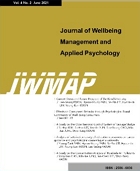- 권한신청
- E-ISSN2586-6036
- KCI
Analysis of University Unification Education Research Trends Using Text Network Analysis and Topic Modeling
Abstract
Purpose: This study analyzed papers identified by entering the two keywords 'unification education' and 'university' during research from 2013 to 2022 in order to identify trends and key concepts in unification education research at domestic universities. Research design, data, and methodology: The study analyzed 224 papers, excluding those on primary, middle, and high school unification education, as well as unrelated and duplicate papers. The analysis included developing a co-occurrence network of keywords, utilizing topic modeling to categorize research types, and confirming visualizations such as word clouds and sociograms. Results: In the final analysis, the research identified 1,500 keywords, with notable ones like 'Korea,' 'education,' 'unification.' Centrality analysis, measuring influence through connected keywords, revealed that 'Korea,' 'education,' 'north,' and 'unification' held significant positions. Keywords with high centrality compared to their frequency included 'learning,' 'development,' 'training,' 'peace,' and 'language,' in that order. Conclusions: This study investigated trends and structures in university-level unification education by analyzing papers identified with the keywords 'unification education' and 'university.' The use of keyword network analysis aimed to elucidate patterns and structures in university-level unification education. The significance of the study lies in offering foundational data for future research directions in the field of unification education at universities.
- keywords
- Text Network Analysis, Topic Modeling, Unification Education, Research Trends, Visulization
- 다운로드 수
- 조회수
- 0KCI 피인용수
- 0WOS 피인용수














